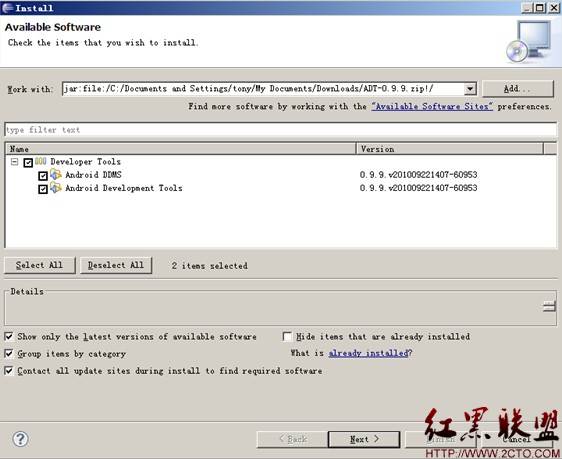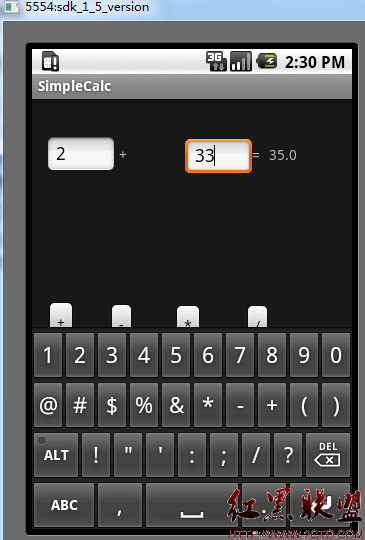Android源码分析]hciops的初始化
凡是真正分析过bluez代码或者debug过相关bug的童鞋,一定对hciops非常熟悉吧,是的,它是各个event的处理中心,承接着controller到上层host的各个方面的交互,本文就来详细分析一下它的初始化过程。2.3.5.2 add_plugin分析
add_plugin只是单纯地把plugin加入到系统里面,或者就是plugin的初始化,来看看吧
[cpp]
static gboolean add_plugin(void *handle, struct bluetooth_plugin_desc *desc)
{
struct bluetooth_plugin *plugin;
//检查是否有init函数,没有直接返回
if (desc->init == NULL)
return FALSE;
//检查一下version是不是匹配,那边初始化的时候就是用的VERSION,所以,没有问题
if (g_str_equal(desc->version, VERSION) == FALSE) {
error("Version mismatch for %s", desc->name);
return FALSE;
}
DBG("Loading %s plugin", desc->name);
//初始化bluetooth_plugin结构体
plugin = g_try_new0(struct bluetooth_plugin, 1);
if (plugin == NULL)
return FALSE;
plugin->handle = handle;
plugin->active = FALSE;
plugin->desc = desc;
//按照priority来加入到plugins list中
plugins = g_slist_insert_sorted(plugins, plugin, compare_priority);
return TRUE;
}
2.3.5.3 hciops的init函数分析
初略一看,hciops的init函数还是蛮简单的,就是一句话:
[cpp]
static int hciops_init(void)
{
DBG("");
//这个我们比较熟悉,就是把hci_ops注册进来呗
//这里我们详细分析一下,究竟做了些什么
return btd_register_adapter_ops(&hci_ops, FALSE);
}
[cpp]
int btd_register_adapter_ops(struct btd_adapter_ops *ops, gboolean priority)
{
//其实就是判断setup函数是否存在,具体的带用会在后面的adapter_ops_setup中
if (ops->setup == NULL)
return -EINVAL;
//根据priority,决定吧ops加入到ops_candidates的头还是尾中,这个还是蛮简单的吧
if (priority)
ops_candidates = g_slist_prepend(ops_candidates, ops);
else
ops_candidates = g_slist_append(ops_candidates, ops);
return 0;
}
2.3.6 adapter_ops_setup的分析
其实这个函数很简单,就是setuphciops,我们来分析一下
[cpp]
int adapter_ops_setup(void)
{
GSList *l;
int ret;
//ops_candidates是在hciops的init函数中加入的
if (!ops_candidates)
return -EINVAL;
//这里也没有别的,就只有hciops,调用他的setup即可
for (l = ops_candidates; l != NULL; l = g_slist_next(l)) {
struct btd_adapter_ops *ops = l->data;
//Setup见下面的分析
ret = ops->setup();
if (ret < 0)
continue;
//同时需要把这个ops和adapter_ops相关联
adapter_ops = ops;
break;
}
return ret;
}
hciops的setup函数也是在对应的ops中定义的,我们去看一下:
[cpp]
static int hciops_setup(void)
{
struct sockaddr_hci addr;
struct hci_filter flt;
GIOChannel *ctl_io, *child_io;
int sock, err;
DBG("");
//先判断一下有没有pipe过
if (child_pipe[0] != -1)
return -EALREADY;
//创建一个管道,child_pipe[0]为读入端,child_pipe[1]为写入端
if (pipe(child_pipe) < 0) {
err = -errno;
error("pipe(): %s (%d)", strerror(-err), -err);
return err;
}
//一个io channel进行监听,若是有数据,就会去读了
child_io = g_io_channel_unix_new(child_pipe[0]);
g_io_channel_set_close_on_unref(child_io, TRUE);
child_io_id = g_io_add_watch(child_io,
G_IO_IN | G_IO_ERR | G_IO_HUP | G_IO_NVAL,
child_exit, NULL);
g_io_channel_unref(child_io);
//创建并且bind hci socket
/* Create and bind HCI socket */
sock = socket(AF_BLUETOOTH, SOCK_RAW, BTPROTO_HCI);
if (sock < 0) {
err = -errno;
error("Can't open HCI socket: %s (%d)", strerror(-err),
-err);
return err;
}
/* Set filter */
//这里只关注bluez stack的internal的event,这个就是DEV_REG,DEV_UP之类的event的处理了
hci_filter_clear(&flt);
hci_filter_set_ptype(HCI_EVENT_PKT, &flt);
hci_filter_set_event(EVT_STACK_INTERNAL, &flt);
if (setsockopt(sock, SOL_HCI, HCI_FILTER, &flt, sizeof(flt)) < 0) {
err = -errno;
error("Can't set filter: %s (%d)", strerror(-err), -err);
return err;
}
memset(&addr, 0, sizeof(addr));
addr.hci_family = AF_BLUETOOTH;
&n
补充:移动开发 , Android ,




